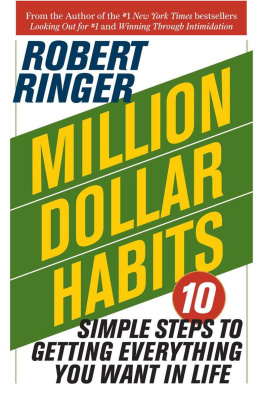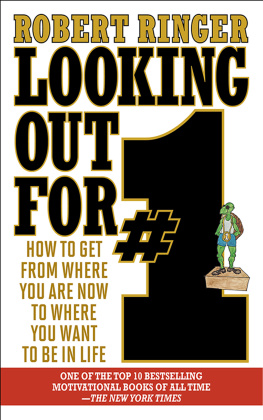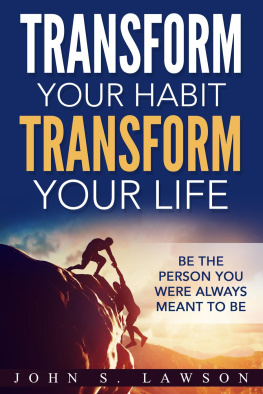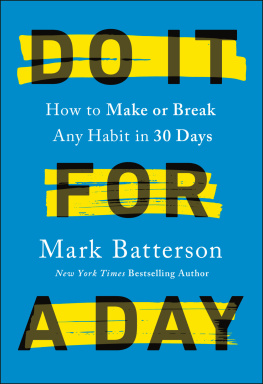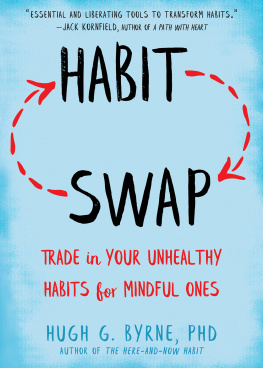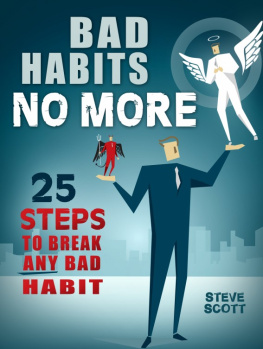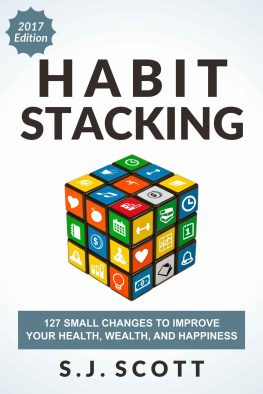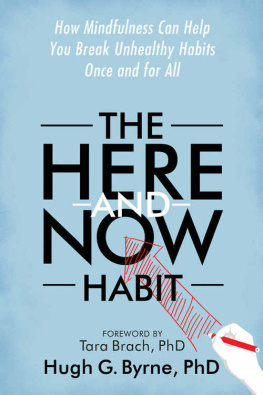Million
Dollar
Habits
Robert Ringer
www.robertringer.com
Copyright 2014 by Robert Ringer
All rights reserved. No part of this book may be reproduced in any form whatsoever, stored in a retrieval system, now known or to be invented, or transmitted in any form or by any means, electronic, mechanical, photocopying, recording, scanning, or otherwise, without the prior written permission of the author or publisher.
Manufactured in the United States if America.
TO MY FAMILY
Contents
| Introduction |
| Chapter 1 |
| Chapter 2 |
| Chapter 3 |
| Chapter 4 |
| Chapter 5 |
| Chapter 6 |
| Chapter 7 |
| Chapter 8 |
| Chapter 9 |
| Chapter 10 |
PREFACE
One of the most frequent questions directed at me in seminars is, "Knowing what you know today, would you change anything in your earlier books if you had the opportunity to do so?" What a question. Of course I would. It's like asking me if I'm dead or alive.
"We're all on our way to learning more," declared Don Shimoda, Richard Bach's messiah in Illusions . It would be difficult, if not impossible, for a person to learn and grow, yet remain static in his thinking. While I haven't exactly become a card-carrying communist or self-immolating monk, I do continually strive to refine my basic philosophy.
An even tougher question with which someone recently confronted me was, "How would you define your occupation?" Interesting question, and one which, remarkably, had never before crossed my mind. After pondering for about twenty seconds, I answered, "I'm in the business of trying to make sense out of life and communicating my conclusions to others in the simplest possible manner." By at least one definition, I guess that makes me a philosopher, because a philosopher is someone who thinks in an effort to make sense out of life.
What a great profession. Why work for a living when you can get away with thinking and typing all day? Of course, you risk going insane in the process, though I was fortunate enough to avoid such a fate until I moved to Los Angeles. (It was none other than Freud himself who warned people like me, "The moment one inquires about the sense or value of life, one is sick.") Still, in all, you know it's worth it when you check the classifieds and see what supermarkets are paying bag boys.
This book is a pretty accurate snapshot of where my thought evolution has taken me to date. To pick up my trail, just follow the path marked Bumps, Bruises, and Scars . If you keep your eyes and mind open and move briskly, you may even avoid a number of pitfalls along the way.
Wherever the neuter is not used in this book, the masculine gender is employed for convenience purposes only. It has no other implications, implied or otherwise.
INTRODUCTION
The first major premise of this book is that success is not dependent upon one's being blessed with superior intelligence or special skills, nor does formal education, hard work, or luck play a major role in an individual's climb toward success. The world is saturated with intelligent, highly educated, extraordinarily skilled people who are perpetually frustrated because of their lack of success. Likewise, millions of others spend their lives working hard, long hours, only to die broke.
As to breaks, they float in and out of people's lives every day without being exploited or, in most cases, even noticed. You've undoubtedly known someone who has been the recipient of inordinately good luck, yet failed to achieve any significant degree of success. Heirs to large fortunes who are grossly unhappy, or who have lost their entire inheritances through reckless or irresponsible behavior, are classic examples of this sad phenomenon.
The second major premise of this book is that the difference between success and failure is not nearly as great as most people believe. Having personally experienced both major success and failure, I can state with confidence that the difference between the two is, in fact, quite slim.
The erroneous notion that there is a major difference between the actions of successful and unsuccessful people causes millions of individuals to cling to the mistaken belief that success is the result of being privy to some tenaciously guarded, mysterious secret. In the event you share this belief, I urge you to let go of it. I can absolutely assure you that there is no big secret to success.
Which leads me to the third and final major premise of this book: Success is matter of understanding and religiously practicing specific, simple habits that always lead to success. While this may not sound particularly glamorous at first blush, there are two realities that make it quite an exciting proposition: First, it works. Second, habits can be developed by anyone who is willing to put forth the necessary effort.
Remember, life is nothing more than the sum total of many successful years; a successful year is nothing more than the sum total of many successful months; a successful month is nothing more than the sum total of many successful weeks; and a successful week is nothing more than the sum total of many successful days. That's why practicing simple success habits day in and day out is the most certain way to come out on top over the long term.
Put in metaphorical terms, success is not a grand-slam home run. Rather, it's a matter of consistently hitting singles and doubles day in and day out. The individual who makes it to the top concentrates on staying at bat and avoiding the big mistake. Then, when that perfect pitch comes across the plate, he hits it out of the park.
The important principle to grasp is that if you don't keep hitting those singles and doubles every day, you may not have the opportunity to hit a home run when that perfect pitch finally arrives. In other words, you can't coast. You've got to do it every day.
The title Million Dollar Habits is a euphemism for habits that lead to positive results. Everyone gets results, regardless of the nature of his actions. A bank robber gets results. A person who refuses to work and goes on welfare gets results. An individual who is inconsiderate and rude gets results. But none of these people get positive results. So keep in mind that whenever I allude to results in this book, I'm talking about results that are in your long-term best interest.
One final note: Though the habits I discuss in this book are relatively simple, I don't mean to suggest that it takes no effort on your part to acquire and practice them. I never try to sell easy. I sell what I perceive to be truth.
Chapter 1
THE REALITY HABIT
Reality is the foundation for every other success habit, so in order for the ideas, strategies, and information that I discuss in this book to be of maximum benefit to you, it's crucial that you develop the Reality Habit. Except for an occasional accident of fate, positive results rarely find their way to people who harbor a faulty perception of reality. While many of the points in this chapter may seem obvious to you, that in itself can create a subtle barrier, because human beings have a tendency to ignore the obvious. Intellectually, we may agree with a point that's apparent, but when it comes time to take action, we often suppress our intellect and allow our emotions to guide us.
I use the word emotions because reality is an issue that people tend to get very emotional about. The problem is that reality is nothing more than truth, and as Baltasar Gracian, the insightful and pragmatic seventeenth-century Jesuit priest, cautioned, "Truth is abhorred by the masses." Instead, they try to make true that which they lovea self-delusive practice that virtually guarantees frustration and failure.
Next page
